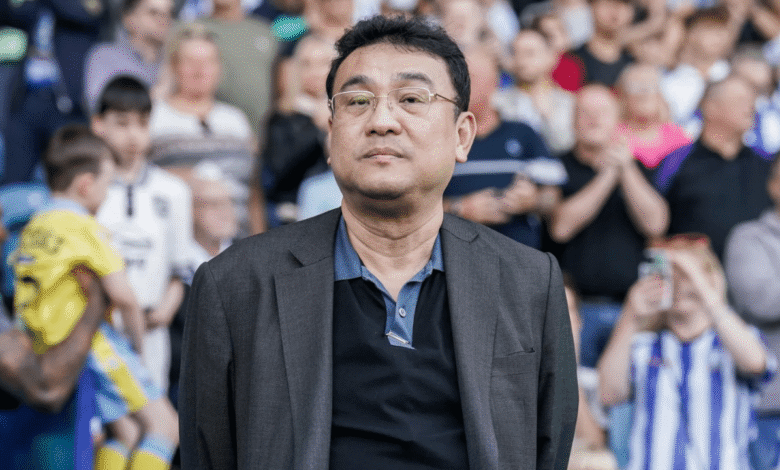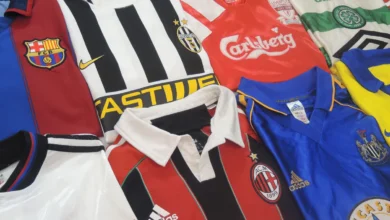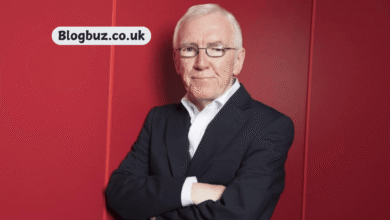Dejphon Chansiri: The Thai Businessman Behind Sheffield Wednesday’s Turbulent Era

Dejphon Chansiri is a Thai businessman best known as the owner and chairman of Sheffield Wednesday Football Club, one of England’s oldest and most historic football teams. Since acquiring the club in 2015, Dejphon Chansiri has been a central figure in both its financial investments and its controversies. His ownership has drawn mixed reactions from supporters, ranging from optimism over early ambitions to deep frustration over recent financial and administrative struggles. Born on June 3, 1968, in Bangkok, Thailand, Dejphon Chansiri comes from one of Thailand’s most influential business families. The Chansiri family owns and operates Thai Union Group, a global seafood conglomerate best known for brands such as John West, Chicken of the Sea, and King Oscar.
Although he has long been involved in the family’s business empire, Dejphon Chansiri rose to international prominence only after his high-profile acquisition of Sheffield Wednesday, an English football club competing in the EFL Championship.
Early Life and Business Background of Dejphon Chansiri
Dejphon Chansiri’s business roots trace back to his family’s empire, Thai Union Group, one of the world’s largest producers of canned tuna and seafood products. The Chansiri family has long held a powerful reputation in Thailand’s corporate world, with billions in global exports and subsidiaries across Europe, Asia, and the Americas.
Before entering the football world, Dejphon Chansiri primarily managed corporate investments, logistics, and international partnerships within the family business. His background in corporate management equipped him with the financial means to venture into European football — a passion project that would eventually define his public identity.
The Purchase of Sheffield Wednesday
In January 2015, Dejphon Chansiri completed the purchase of Sheffield Wednesday Football Club from Serbian businessman Milan Mandarić for an estimated £37.5 million. At the time of acquisition, the club was playing in the EFL Championship, the second tier of English football, with ambitions of returning to the Premier League.
Chansiri made a bold declaration upon taking ownership:
“I aim to take Sheffield Wednesday to the Premier League by 2017.”
Initially, fans welcomed Chansiri’s takeover with optimism. He poured millions into improving the club’s infrastructure, player recruitment, and managerial appointments. Under his ownership, Sheffield Wednesday reached the Championship Play-Off Final in 2016, narrowly losing to Hull City — a match that, if won, would have returned the club to the top flight for the first time in over 15 years.
Financial Investments and Early Ambitions
The early years of Dejphon Chansiri’s ownership were marked by significant spending. The club recruited notable players and invested heavily in salaries, training facilities, and scouting networks. Sheffield Wednesday became one of the Championship’s biggest spenders between 2015 and 2018, showing the owner’s willingness to back the team financially.
Chansiri’s ambition seemed clear: promotion at any cost. However, the lack of a sustainable long-term financial strategy began to show. The club’s revenue growth lagged behind its expenses, leading to mounting losses. Despite Chansiri’s cash injections, Sheffield Wednesday failed to secure promotion, missing out on the massive financial rewards of Premier League status.
Financial Struggles and EFL Charges
By 2019, the club’s spending spree had caught up with it. The English Football League (EFL) charged Sheffield Wednesday — and Dejphon Chansiri personally — with misconduct related to financial fair play (FFP) regulations. The EFL alleged that Chansiri had artificially inflated the club’s profits by selling the Hillsborough Stadium to a company he owned to balance the club’s books.
This led to a 12-point deduction for the 2020–21 season, though it was later reduced on appeal. Still, the incident damaged both Chansiri’s reputation and the club’s competitiveness. Sheffield Wednesday was relegated to League One, marking one of the darkest chapters of Chansiri’s tenure.
The Wages and Embargo Controversies
From 2023 onward, the club’s financial troubles became increasingly visible. Reports surfaced of delayed wage payments to players and staff, leading to protests and public backlash. In October 2023, Sheffield Wednesday was hit with an EFL transfer embargo due to unpaid taxes to HM Revenue & Customs (HMRC).
In an unusual move, Dejphon Chansiri publicly asked fans to help raise £2 million to resolve the issue, stating that he could not immediately access the necessary funds due to “cash flow problems.” The plea sparked outrage among supporters who believed that a millionaire club owner should not rely on fan donations to pay wages and debts.
The controversy deepened in 2024 and 2025, with recurring delays in staff payments and further EFL investigations into the club’s financial compliance. This period solidified Chansiri’s reputation as one of the most polarizing owners in English football.
Fan Reactions and Public Image of Dejphon Chansiri
Dejphon Chansiri’s relationship with Sheffield Wednesday supporters has been strained for years. While some still appreciate his early financial backing and dedication, many fans have grown frustrated with what they perceive as mismanagement and lack of transparency.
In interviews, Chansiri has repeatedly defended his record, arguing that he has invested heavily in the club and that external factors — such as financial regulations and the pandemic — have made running a football club more difficult. He has also stated that he receives constant criticism and abuse from fans, which he claims has discouraged him from further investment.
Protests against his ownership have grown in scale, especially after repeated wage delays. Banners reading “Chansiri Out” have become common at Hillsborough, symbolizing growing discontent among supporters who want a change in leadership.
Chansiri’s Net Worth and Family Business Influence
According to Forbes estimates, the Chansiri family’s net worth is approximately US$575 million. However, it is unclear how much of that wealth Dejphon personally controls. His involvement in Thai Union Group gives him access to vast corporate resources, but his football operations appear to be managed separately.
The Chansiri family business continues to thrive globally, exporting seafood products to over 50 countries. Yet, Dejphon’s personal fortune has been significantly affected by his football investments, which have not yielded financial returns.
Despite financial losses, Dejphon Chansiri maintains that he has no regrets about buying Sheffield Wednesday, calling it a “long-term passion project” rather than a profit-making venture.
The Current State of Sheffield Wednesday Under Chansiri
As of 2025, Sheffield Wednesday remains under financial strain and regulatory scrutiny. The club continues to face challenges related to compliance with EFL rules, including transfer restrictions and late payments. The fan base is divided, with some calling for Chansiri to sell the club and others hoping he can stabilize it.
The team’s performance on the pitch has also been inconsistent, often overshadowed by off-field issues. Many analysts believe that unless Chansiri restructures the club’s financial model or sells it to new investors, Sheffield Wednesday may struggle to return to its former glory.
Dejphon Chansiri’s Legacy and Future Prospects
The legacy of Dejphon Chansiri at Sheffield Wednesday is complex. He is both a benefactor who once revived hope and a controversial figure blamed for the club’s decline. His early ambitions were noble — restoring a historic English club to the Premier League — but his management style and decisions have led to instability.
Moving forward, Chansiri faces two main options:
- Continue Ownership with Reform – Implement transparent governance, restructure finances, and rebuild trust with fans.
- Sell the Club – Transfer ownership to new investors who can fund long-term recovery.
Whichever path he chooses, Dejphon Chansiri’s name will remain deeply intertwined with Sheffield Wednesday’s modern history — as a symbol of both hope and hardship.
Conclusion
In summary, Dejphon Chansiri is a wealthy Thai businessman whose ownership of Sheffield Wednesday has been one of the most dramatic and controversial stories in English football over the past decade. From initial ambition and heavy spending to financial turmoil and fan unrest, Chansiri’s journey reflects both the opportunities and pitfalls of foreign ownership in football.
You May Also Read: Justin Chatman: Rising Star in American College Football and Sports




